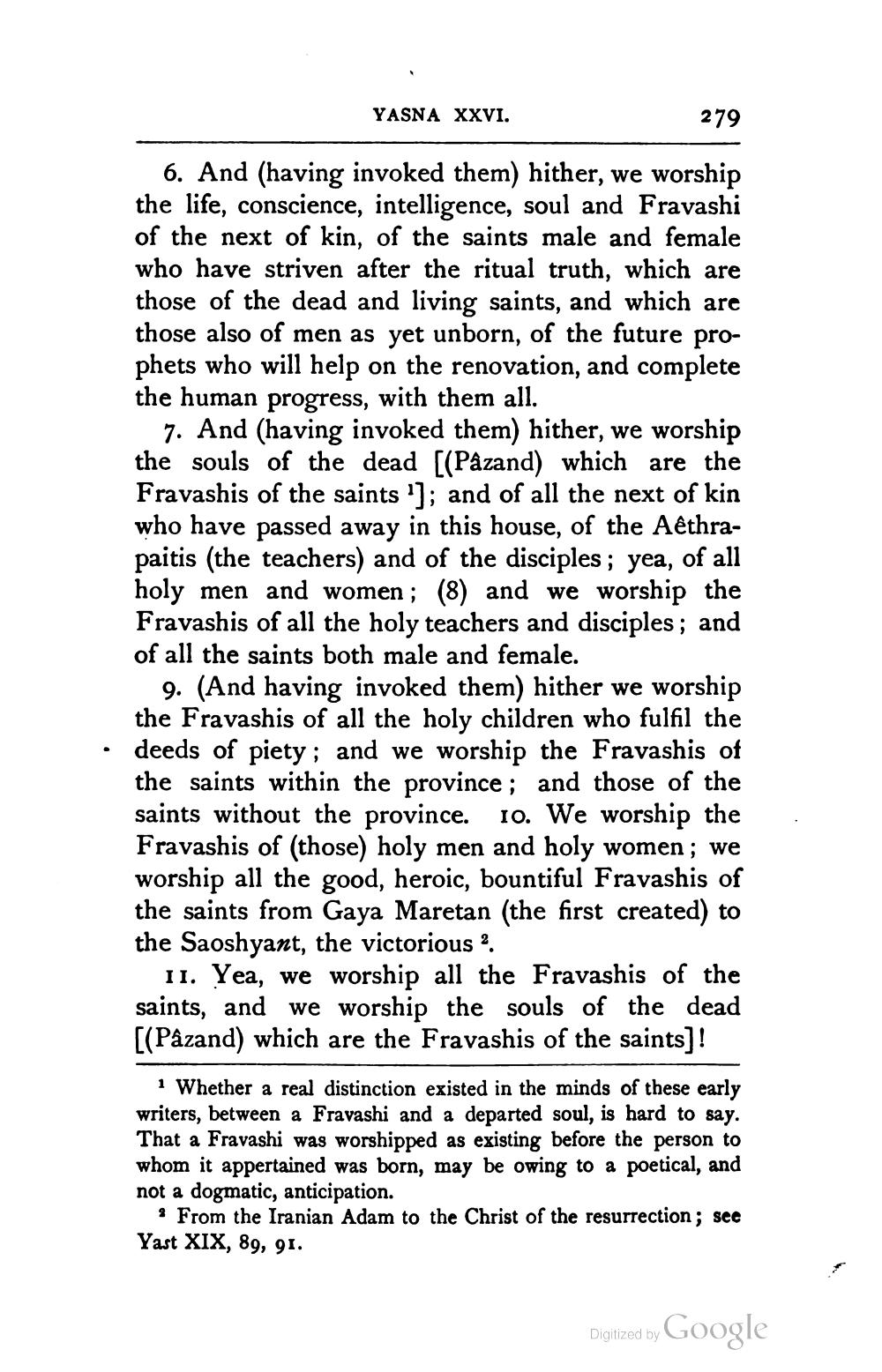________________
YASNA XXVI.
279
6. And (having invoked them) hither, we worship the life, conscience, intelligence, soul and Fravashi of the next of kin, of the saints male and female who have striven after the ritual truth, which are those of the dead and living saints, and which are those also of men as yet unborn, of the future prophets who will help on the renovation, and complete the human progress, with them all.
7. And (having invoked them) hither, we worship the souls of the dead [(Pazand) which are the Fravashis of the saints']; and of all the next of kin who have passed away in this house, of the Aêthrapaitis (the teachers) and of the disciples; yea, of all holy men and women ; (8) and we worship the Fravashis of all the holy teachers and disciples; and of all the saints both male and female.
9. (And having invoked them) hither we worship the Fravashis of all the holy children who fulfil the deeds of piety; and we worship the Fravashis of the saints within the province; and those of the saints without the province. 10. We worship the Fravashis of (those) holy men and holy women; we worship all the good, heroic, bountiful Fravashis of the saints from Gaya Maretan (the first created) to the Saoshyant, the victorious ?
11. Yea, we worship all the Fravashis of the saints, and we worship the souls of the dead [(Pazand) which are the Fravashis of the saints)!
1 Whether a real distinction existed in the minds of these early writers, between a Fravashi and a departed soul, is hard to say. That a Fravashi was worshipped as existing before the person to whom it appertained was born, may be owing to a poetical, and not a dogmatic, anticipation.
. From the Iranian Adam to the Christ of the resurrection; sec Yast XIX, 89, 91.
Digitized by
Digitized by Google




